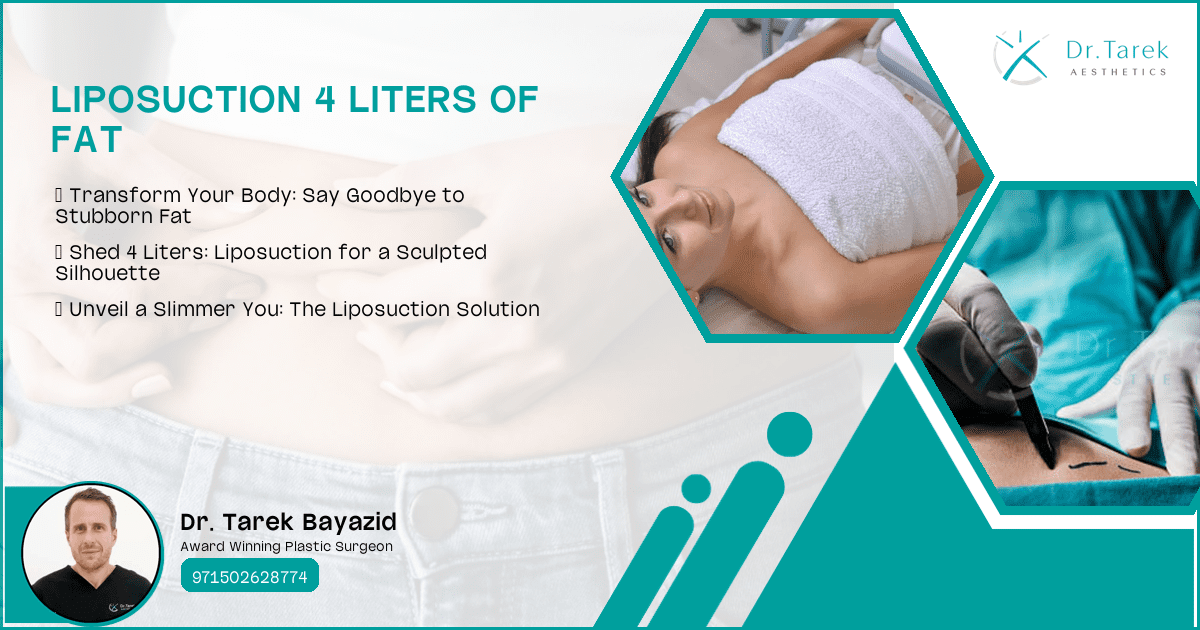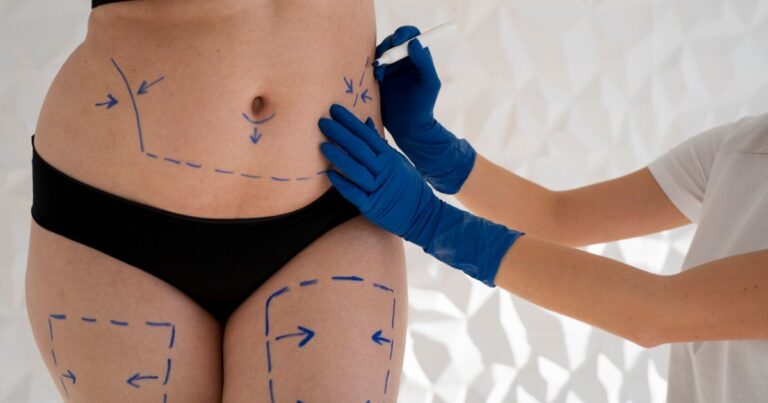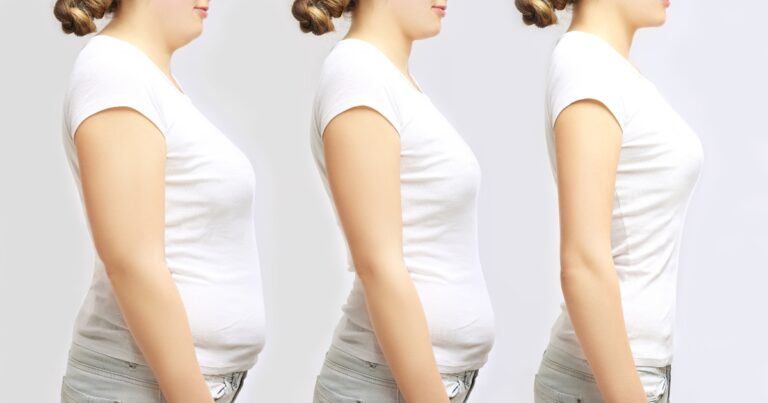Understanding Liposuction Fat Removal Volumes
Defining Liposuction and Its Purpose
Liposuction is a cosmetic surgical procedure designed to remove excess fat deposits from specific areas of the body. It aims to improve body contours and proportions, enhancing the patient’s overall appearance. The procedure is not a weight-loss solution but rather a method to target stubborn fat that doesn’t respond to diet and exercise.
- Purpose : Body contouring, not weight loss
- Target Areas : Abdomen, thighs, buttocks, arms, neck
Safe Fat Removal Limits in Liposuction
The safety of liposuction largely depends on the volume of fat removed. Medical guidelines suggest that removing more than 5 liters of fat in a single session can increase the risk of complications. Therefore, it’s crucial to adhere to safe fat removal limits to ensure patient safety.
- Safe Limit : Up to 5 liters per session
- Risks : Increased complications with higher volumes
Maximum Fat Removal in a Single Liposuction Session
Guidelines for Safe Liposuction Volumes
The American Society of Plastic Surgeons recommends that the maximum safe volume of liposuction should not exceed 5000 mL of total aspirate or 4% of body weight. This guideline helps minimize the risk of complications such as fluid imbalance and infection.
Book A Consultation With Dr Tarek Bayazid
Top-rated Plastic Surgeon For Liposuction in Dubai
Installment Plan Available
- Maximum Volume : 5000 mL or 4% of body weight
- Complications : Fluid imbalance, infection
Factors Affecting Fat Removal Capacity
Several factors influence the amount of fat that can be safely removed during liposuction. These include the patient’s overall health, the areas being treated, and the surgeon’s expertise. It’s essential to have a thorough consultation with a qualified surgeon to determine the appropriate volume for each individual.
- Health Status : Overall health and medical history
- Treatment Areas : Specific body parts targeted
- Surgeon Expertise : Experience and skill level
Comparing 4 Liters vs 5 Liters of Liposuction
Visual Representation of Fat Volume
Understanding the volume of fat removed can be challenging. To put it into perspective, 4 liters of fat is roughly equivalent to 8.8 pounds, while 5 liters is about 11 pounds. Visualizing these amounts can help patients set realistic expectations for their results.
- 4 Liters : Approximately 8.8 pounds
- 5 Liters : Approximately 11 pounds
Impact on Body Contouring Results
The difference between removing 4 liters and 5 liters of fat can significantly impact body contouring results. While 5 liters may offer more dramatic changes, it also comes with increased risks. Patients should weigh the benefits and potential complications when deciding on the volume of fat removal.
- 4 Liters : Noticeable improvement, lower risk
- 5 Liters : More dramatic change, higher risk
Risks Associated with Removing Large Volumes of Fat
Potential Complications of Excessive Liposuction
Removing large volumes of fat can lead to several complications, including fluid imbalance, infection, and prolonged recovery times. To minimize these risks, it’s crucial to follow medical guidelines and opt for staged procedures if necessary.
- Fluid Imbalance : Risk increases with higher volumes
- Infection : Higher risk with larger fat removal
- Prolonged Recovery : Longer healing time
Recovery Time for Different Fat Removal Volumes
Recovery time varies depending on the volume of fat removed. Patients who undergo larger volume liposuction may experience more swelling, bruising, and discomfort, leading to a longer recovery period. It’s essential to follow post-operative care instructions to ensure a smooth recovery.
- 4 Liters : Moderate swelling and bruising
- 5 Liters : Increased swelling and discomfort
Benefits of Staged Liposuction Procedures
Multiple Sessions for Optimal Results
Staged liposuction procedures involve removing fat in multiple sessions rather than a single operation. This approach allows for safer fat removal and better overall results. Patients can achieve their desired body contouring goals while minimizing the risk of complications.
- Safety : Reduced risk of complications
- Results : Improved body contouring
Balancing Safety and Aesthetic Goals
Balancing safety and aesthetic goals is crucial in liposuction. While patients may desire significant fat removal, it’s essential to prioritize safety. Staged procedures offer a balanced approach, allowing patients to achieve their desired results without compromising their health.
- Safety First : Prioritize patient health
- Aesthetic Goals : Achieve desired results safely
How Much Weight Can You Lose with Liposuction?
Realistic Expectations for Fat Reduction
Liposuction is not a weight-loss procedure but a body contouring method. Depending on the volume of fat removed, patients can expect to lose a few pounds. However, it’s essential to have realistic expectations and understand that liposuction targets specific areas rather than overall weight loss.
- Weight Loss : A few pounds, depending on fat volume
- Target Areas : Specific body parts
Liposuction vs Traditional Weight Loss Methods
Traditional weight loss methods, such as diet and exercise, focus on overall body fat reduction. In contrast, liposuction targets localized fat deposits. Combining both approaches can lead to optimal results, with liposuction enhancing the effects of a healthy lifestyle.
- Traditional Methods : Overall fat reduction
- Liposuction : Targeted fat removal
Is Liposuction Permanent
Long-term Effects of Fat Removal
Liposuction permanently removes fat cells from the treated areas. However, if the patient gains weight, the remaining fat cells can still expand. Maintaining a stable weight through a healthy lifestyle is crucial to preserving the results of liposuction.
- Permanent Removal : Fat cells are permanently removed
- Weight Maintenance : Essential for long-term results
Maintaining Results Post-Liposuction
To maintain liposuction results, patients should adopt a healthy lifestyle, including a balanced diet and regular exercise. Avoiding significant weight fluctuations helps ensure that the treated areas remain contoured and aesthetically pleasing.
- Healthy Lifestyle : Balanced diet and exercise
- Weight Stability : Avoid significant fluctuations
Cost Considerations for Different Liposuction Volumes
Pricing Factors for 4 Liters vs 5 Liters of Fat Removal
The cost of liposuction varies based on several factors, including the volume of fat removed, the surgeon’s expertise, and the geographic location. Removing 5 liters of fat may be more expensive than 4 liters due to the increased complexity and time required.
- Volume of Fat : Higher volume, higher cost
- Surgeon Expertise : Experienced surgeons may charge more
- Location : Geographic variations in pricing
Insurance Coverage for Liposuction Procedures
Liposuction is typically considered a cosmetic procedure and is not covered by insurance. However, some cases, such as liposuction for medical reasons, may qualify for partial coverage. Patients should consult with their insurance provider to understand their options.
- Cosmetic Procedure : Generally not covered
- Medical Reasons : Possible partial coverage
Choosing the Right Surgeon for Your Liposuction Procedure
Qualifications and Experience to Look For
Selecting a qualified and experienced surgeon is crucial for a successful liposuction procedure. Patients should look for board-certified plastic surgeons with extensive experience in liposuction. Checking reviews and before-and-after photos can also help in making an informed decision.
- Board Certification : Essential for safety and expertise
- Experience : Extensive liposuction experience
- Reviews and Photos : Check patient feedback and results
Importance of Personalized Treatment Plans
A personalized treatment plan ensures that the liposuction procedure is tailored to the patient’s unique needs and goals. During the consultation, the surgeon should assess the patient’s body type, discuss expectations, and create a customized plan for optimal results.
- Assessment : Evaluate body type and goals
- Customization : Tailored treatment plan
How Much Fat Can Be Removed Safely in Liposuction
Removing 4 liters of fat from lipo is generally considered safe and effective for many patients. However, how much 5 liters of liposuction is. While removing up to 5 liters can offer more dramatic results, it comes with increased risks that need careful consideration. Therefore, when exploring liposuction, 4 liters of fat considerations, it’s essential to consult with your surgeon to determine the safest and most effective volume for your individual needs.
What Happens to Excess Skin After Large-Volume Liposuction
Skin Retraction and Additional Procedures
After large-volume liposuction, the skin may not retract fully, leading to excess skin. In such cases, additional procedures like skin tightening or a tummy tuck may be necessary to achieve the desired results. Patients should discuss these options with their surgeon during the consultation.
FAQ’s
Can Liposuction Be Combined with Other Cosmetic Procedures?
Liposuction can be combined with other cosmetic procedures, such as tummy tucks, breast lifts, or body lifts, for comprehensive body contouring. Combining procedures can enhance overall results and reduce recovery time compared to undergoing multiple surgeries separately.
How Long Do Liposuction Results Last?
The longevity of liposuction results depends on several factors, including maintaining a stable weight, following a healthy lifestyle, and avoiding significant weight fluctuations. Patients who adhere to these guidelines can enjoy long-lasting results from their liposuction procedure.
Are There Non-Surgical Alternatives to Liposuction?
Non-surgical alternatives to liposuction, such as CoolSculpting or laser lipolysis, offer fat reduction without surgery. While these methods can be effective for small fat deposits, they may not provide the same dramatic results as removing 4 or 5 liters of fat through liposuction. Patients should consider their goals and consult with a qualified professional to determine the best approach.








